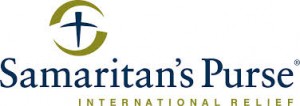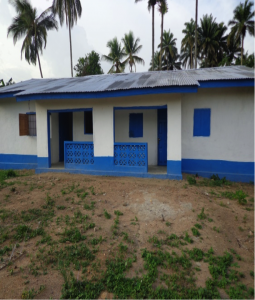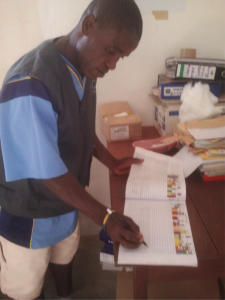Notes from the field: Samaritan’s Purse in Liberia

Samaritan’s Purse has been working with the government of Liberia since 2010 to provide health services to rural Liberians, first in the basic package of health services (BPHS) program, and now in the essential package of health services (EPHS) program. As partners, our role is three fold: mentor health facility staff in the supervision of Community Health Workers (CHWs), support the professional development of CHWs and facilitate the development of positive relationships between communities and the health facilities.
Data collection and linking CHW registries with national health information systems
Data collection at the community level through the CHWs has been successful. They do house to house visitations and keep records of all those who have been treated for childhood illness such as diarrhea, ARI and malaria. Monthly meetings are held between the Community Health Supervisors (from Samaritan’s Purse), CHWs and clinic staff. During these meetings, the CHWs present their reports and state their challenges and successes. Samaritan’s Purse staff use this time to motivate and teach the CHW health promotion topics that they, in turn, teach their community members.
Presently, information gathered by the CHWs is not included in the HMIS (Health Management Information System). The idea of linking the CHW registries with the national HMIS is a brilliant one. When data collected by the CHWs is not included in the HMIS, health facility staff can see the work of the CHWs as a siloed development program and, as a result, are not as motivated to work effectively with the CHWs. If CHW registries are linked with the HMIS, there will be better support from health facility staff to the community component of the health system and data from the communities can play an important role in policy and planning at the national level. It is exciting to see planning for such a system underway at the Community Health Division of Liberia’s Ministry of Health and Social Welfare.
The Community Health Development Committee (CHDC)
One group of CHWs in Liberia are the Community Health Development Committees (CHDC)- teams of well-respected citizens elected by their community. They support the health facilities by mobilizing the community to complete projects that support the facility, such as building maternal waiting homes and even constructing staff quarters. One such example is Sorlumba (picture below), a town located in Foya District. In December 2012, the CHDC worked with the community and Samaritan’s Purse to complete a three bedroom house to be used as a staff house. Adequate housing contributes to the retention of qualified staff. Bundoo, the CHDC chairman for that area said, “we are happy that our doctors will have their own house and we will no longer worry about finding houses for them to stay in.”
Successes and Challenges
One challenge, which encourages us to think creatively, is the issue of motivating volunteer CHWs. CHWs are not compensated for their work, and this tempts some to treat the responsibility quite casually. Many rural community dwellers in Liberia are still of the ‘relief’ mindset and feel that they should be compensated for any and all services that they render to themselves.
Some CHWs work in communities that are not motivated to support the work of the CHWs. Many communities think that the CHWs are employed by the MOH of Liberia or an iNGO. Therefore, volunteer CHWs struggle to make the communities understand their duties. Some CHWs complain of losing trust from the community when they are not adequately equipped to fulfill their role. For example, they are supposed to be in a position to administer certain medications in the communities. When drugs are not available, mothers go to seek health care from other sources and are not captured in the CHW registers.
However, as with every challenge, there have been successes! Some CHWs are gradually grasping the concept of development and valuing the opportunity they have to serve their communities. Henry, a CHW from Laingbamba, said “I am happy that my community understands that I render voluntary services to them and has agreed to support me. They organized young men to work my farm twice last year and I am also excluded from community road brushing. I will continue to work for my community as long as I am able to.”
Author: Kou Bamakpa, Program Manager, Essential Package of Health Services, Samaritan’s Purse International Relief- Liberia



2 Comments
Nenneh Chieyoe
Could not agree with you more on the issue of linking CHW registries with the HMIS since data from the communities plays an important role in planning at the national level. This document will also show who is doing what so the level of support from staff in health facilities to CHWs and other health workers will increase than we will be on right trajectory for health services strengthening and management.I also agree with Bundoo. If adequate housing is provided, no health worker will worry about leaving form one county to another to work
Nenneh Chieyoe
Could not agree more with you on the issue of linking CHW registeries to HMIS since data from the communities plays an important role in planning at the national level. This document will also show who is doing what so the level of support from the staff in health facilities to CHWs and other health workers will increase then we can boast of getting on the right trajectory for health services strengthening and management.
Again with the issue of adequate housing being available as the CHDC, Bundle said, if this is in place no health worker will worry about leaving form one county to another for work.